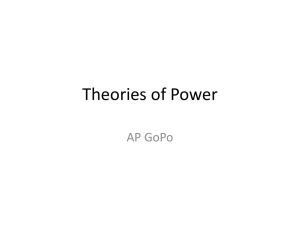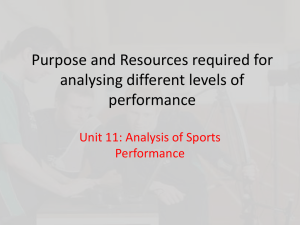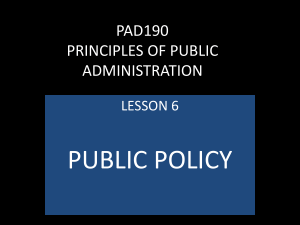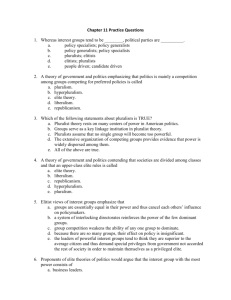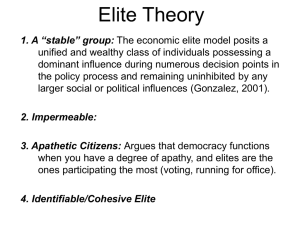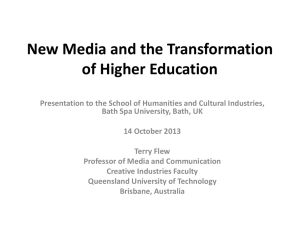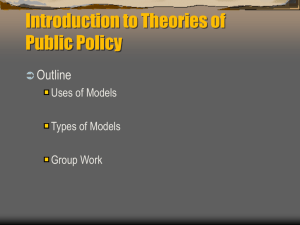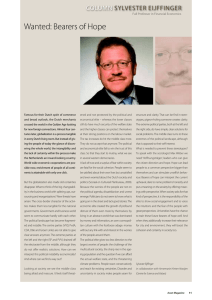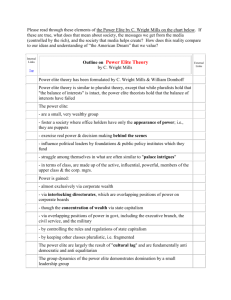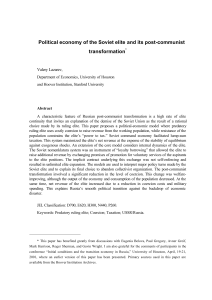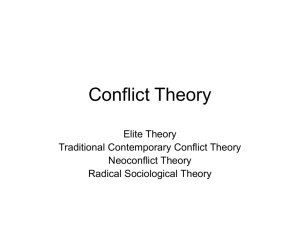Week 6
advertisement
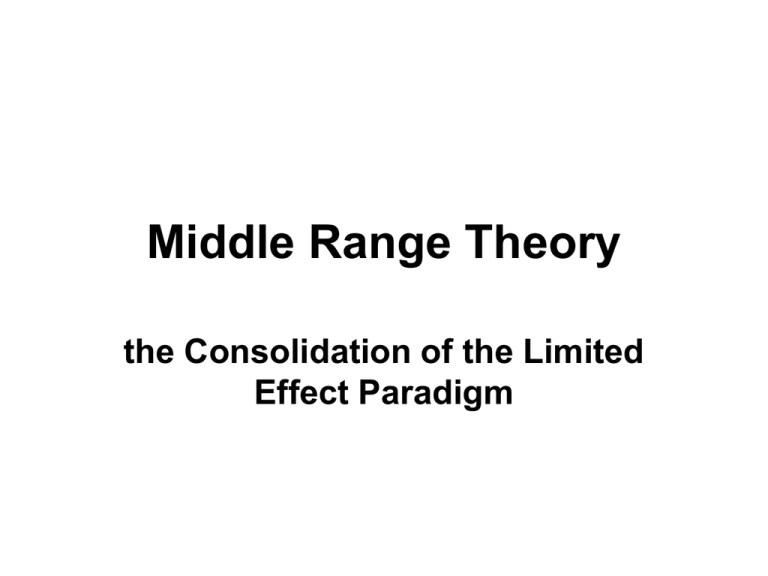
Middle Range Theory the Consolidation of the Limited Effect Paradigm • Middle range theory consists limited sets of assumptions and hypothesis based on empirical researches. • They are locate din wider networks of theories. • They are abstract to deal with social practices. These theories cut across the distinction between micro sociological theories. • Implying this to media studies one can see that all individual media effects studies can come together and develop. Functionalist analysis (Merton, Schramm, Lyle and Parker) • This approach sees society as complex system of interrelated functional parts. Functionalism suggest media function and dysfunction should be studied with value neutrality. • No basis making judgment about media. Functional items are good dysfunctional items are evil. Merton also divides function into to as manifest (intended observed) and latent (unintended and less observable) function. • Media messages have both functions from this point of view. The functional for one part can be dysfunctional to the other part. • Thus functionalist analysis of the media could legitimize the status quo. The idea is that media should be functional to get in balance. Violent messages can encourage or discourage the violent behaviours of children so they can be both functional and dysfunctional for some children. Flow of info form elites to public • This approach worked whether some barriers influential in persuasion work against information flow. Davis found out that hard news are hardly informative for American audiences. Even soft news are not informative as they are hoped. Word of mouth can easily be forgotten or distorted. • Its limitation is that the information comes from elite sources to ignorant audiences. Information Flow Theory • Strength -examines process of mass media in real world • -provides theoretical basis for successful public information campaigns -identifies barriers to information flow -helps understanding information flow during crises. • Weakness -is simplistic, linear, source dominated -assumes ignorant apathetic audience -fails to consider utility or value of information for receivers -is too accepting of status quo. Information Diffusion Theory (Rogers) • From the point of elite and it provides better strategies for overcoming barriers to innovations. • Rogers use information flow research finding in other disciplines made the approach well-known and the approach was called as Information Diffusion Theory. • Not media messages but all sorts of information will pass through a series of stages before being adopted like in Lazasrfeld idea of two step flow and defines 5 steps: 1. awareness, 2. early adopter, 3.opinion leader, 4. opinion followers, 5. late adopters to make change. Who directly influence early adopters and opinion leaders is called change agent. Phenomenistic Teory (Klapper) • Media are rarely the sole cause of effects and are relatively powerless when compared with other social and psychological factors. • Later on it is called as Reinforcement theory referring media power of reinforcement rather than making change. • Media have no cause effect more than other factor and media just reinforce audiences. Mass Entertainment Theory (Mendelshon) • TV and other media have very cheap entertaining functions. Elite media critism doesn’t want to accept the power of TV. TV’s harmful effects are balanced with positive effects. Elite Pluralism (Key) • Political news inform only already informed people who are representing other intelligently. It is not like in classical democracy every one should be informed. • Average people did not know and care much about politics. Important thing is votes’ stability but not their quality. • People do not want sudden changes if media are able to do that it wouldn’t be what’s wanted. • Elite pluralism implies a political system in which many diverse groups are given equal status and representation. • Media should not be expected to lead public opinion but rather should reinforce it. Changes should come form pluralistic groups.
